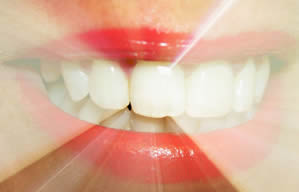Maintaining your patient’s health involves cleaning lower and upper dentures of patients and residents. It is important to maintain a good mouth care for residents who cannot clean their own dentures. It has to be done regularly and with the best care taken as can be possible in order to prevent any type of infection to develop on the patient’s mouth. Make sure that you make use of the most hygienic procedure possible in order to keep their oral health in good condition and also to make sure that they can enjoy their food every time they eat.
The first thing that one has to do in cleaning upper and lower dentures is of course to greet the patient and introduce yourself first. This is to eliminate any type of apprehension from the patient. You also need to explain why you are there and what the possible step-by-step procedures will be for the whole process. Wash your hands thoroughly and ask your patient to give you their dentures or you can try to remove them if they are having difficulty removing them from their mouth. You can do this by gently manipulating the dentures up and down until they become loose.
 The next step is to bring the two pieces of dentures to the cleaning area or the sink and then line the bottom of the sink with a washcloth. Try to get a warm temperature of water by mixing the hot and cold waters and then try to fill the sink partly with the warm water. After that, clean the dentures using a regular toothbrush and denture cleaning substances. Remove as much dirt as you can from the dentures and try to contact all of the surfaces in the denture. The most important parts to clean are those which come in direct contact with the gums as any leftover bacteria or food can cause infection.
The next step is to bring the two pieces of dentures to the cleaning area or the sink and then line the bottom of the sink with a washcloth. Try to get a warm temperature of water by mixing the hot and cold waters and then try to fill the sink partly with the warm water. After that, clean the dentures using a regular toothbrush and denture cleaning substances. Remove as much dirt as you can from the dentures and try to contact all of the surfaces in the denture. The most important parts to clean are those which come in direct contact with the gums as any leftover bacteria or food can cause infection.
Next, rinse the dentures thoroughly under tap water and try to remove as much of the cleaning material as possible. After that, put the dentures into a denture cup that contains cold clean water. This is to help eliminate any chances of contamination. Help the resident get his mouth cleaned before inserting the dentures again. Try to look for signs of infection or swelling and report to your supervising nurse if there are any. Do not try to fit the dentures when these are present in the gums.
When you have finished with the task, you should remove your gloves and wash your hands thoroughly. Check if your patient is in the most convenient position before you leave them and that their call lights and everything that they need is within their reach. Cleaning your patient’s dentures is an important task that a CNA should do daily in order to maintain the oral health of the resident. Make sure that you have also respected their rights to privacy and independence during the whole process asking them about their preferences and taking note that they are comfortable.
Watch the video on how to clean upper and lower dentures:
https://www.youtube.com/watch?v=JkYX3qMpcwU
Part 2 of the cleaning dentures CNA skill:
https://www.youtube.com/watch?v=p5dUu2sAJMU